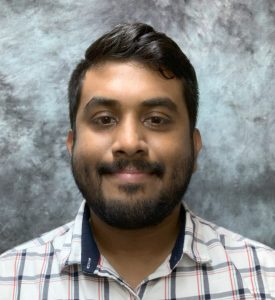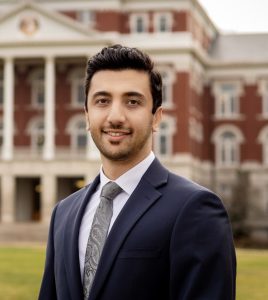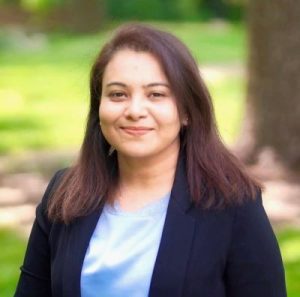
Nov. 29, 2023
Gillian Bartlett

Nov. 28, 2023
Deshan Wattegama
Deshan Wattegama is a Ph.D. student in the IDAS lab following a health informatics Ph.D. program. He worked as a senior software engineer for over 4 years and has domain knowledge in supply chain management, stock brokering, etc. He is interested in the usage of blockchain and AI in healthcare systems and using VR, and AR technologies to improve the quality of healthcare systems.

Nov. 28, 2023
Md Kamruz Zaman Rana
Md Kamruz Zaman Rana, a Biomedical Informatics Software Engineer at the University of Missouri, is concurrently advancing his studies with a doctoral degree in Health Informatics at the MU Institute for Data Science and Informatics. Prior to his current role, Rana accrued significant experience as a graduate research assistant over a period of 3.5 years. Additionally, he holds a Master of Science in Medical Informatics and a Bachelor of Science in Computer Science and Engineering. Rana boasts an impressive professional background, with 3 years in web and mobile application development, later progressing to become the lead Android developer at Rankmylist…

Nov. 28, 2023
Polycarp Nalela
I have a Bachelors degree in Science Technology, Masters degree in Biotechnology, and currently pursing a PhD in Informatics. I have worked with data especially analytics for over 10 years. Initially, I started with R analyzing data from breeding trials such as genotype by environment (G&E); genome wide association studies (GWAS); and population genomics. As I advanced my analysis of big and complex data and taking advanced courses in statistics, genomics, databases, machine learning, data mining, and cloud computing, I found myself learning other programing languages (Python, SQL, Bash, C++, and JS) that I now apply in routine workflows. I…

Nov. 27, 2023
Katrina Boles
Prior to receiving a MS in Data Science & Analytics at Mizzou in 2020, Katrina was a motion graphics artist and art director in marketing and communications. She is currently a PhD candidate and a Data Analyst with ECHO Autism. Her research interests include: human-computer interaction, user-centered design, and visualizing personal sensor data. She is a member of the Precision Smart Technologies for Rapid Translation (Precision START) lab and her dissertation research focus is on the user-centered design of an integrated sensor interface to support remote care coordination for the Age-friendly Sustainable Smart and Equitable Technologies for Aging in Place…

Nov. 27, 2023
Mohammad Beheshti
I’m a Health Informatician and PhD student in Health Informatics, specializing in data analytics and data science, with a keen focus on clinical and population data analysis. Currently, I’m a Graduate Research Assistant at the Missouri Cancer Registry and Research Center, where I collaborate closely with the database team to perform the ETL process for cancer data collected from across the state of Missouri. My work also involves building predictive models and utilizing data to enhance patient outcomes. I’m deeply passionate about using data to drive positive changes in healthcare.

Oct. 24, 2023
Sonia Akter
Sonia is currently pursuing her doctoral research in Health Informatics. Her research interests focus on artificial intelligence (AI), machine learning (ML), deep learning (DL), large language models (LLM), and analyzing various types of healthcare-related data, including electronic health records (EHR), cognitive data, and sensor data, to predict clinical outcomes. Sonia earned her BS in Forestry from the Institute of Forestry and Environmental Sciences at Chittagong University (CU) in Bangladesh. She then received a European Union (Erasmus Mundus) Scholarship to pursue her MS in European Forestry, which provided her the unique opportunity to immerse herself in diverse academic environments across several…

Oct. 24, 2023
Olabode Ogundele
I was born and raised in Lagos, Nigeria. I also had my undergraduate education in Nigeria. The Informatics PhD journey has been a huge learning curve, and the unlimited opportunities are inspiring. There are more fun things than studying and researching. Beyond my academic pursuits, I am an ardent supporter of Arsenal Football Club of England. I am either cheering my team or playing a soccer match myself. I enjoy hiking and the compelling narratives and dramatic landscapes of Western movies.

Oct. 24, 2023
Trevor Mandy
As a Columbia Native I’ve been lucky enough to call Mizzou my home for 26 years! Coming from a background in healthcare management and finance, my focus area is health and biomedical informatics. My research interests include the application of AI models to large-scale EHR data to predict clinical outcomes and derive the cost-effectiveness of clinical practices. Currently, I am researching the effectiveness of Ivacaftor and the rest of the -caftor family of medications in their ability to moderate weight gain/loss in patients with Cystic Fibrosis, as compared to traditional interventions such as high-fat diets and therapeutic interventions. Towards the…